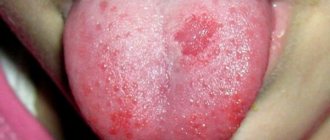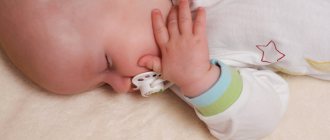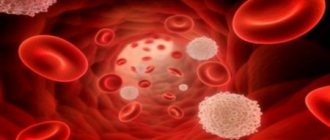According to statistics, urinary tract infections are one of the most common illnesses in the world. More than 90% of them are caused by bacteria. The risk of these diseases increases during pregnancy and breastfeeding. The correct choice of antibiotic will eliminate complications, relapses and the danger of negative reactions for both the nursing mother and the child. One of the effective drugs that are relatively approved for lactation is Monural.
- 2 Safety of Monural during breastfeeding
- 3 Rules of administration and dosage
- 4 Contraindications and side effects
- 5 Effect of the drug on lactation and the child
- 6 Analogues of Monural, permitted during lactation
6.1 Table: comparative characteristics of Monural and its analogues for the treatment of the urinary tract
- 6.2 Photo gallery: analogues of Monural during lactation
Monural: mechanism of action, release form
Monural (Fosfomycin) is an antibacterial agent that is active against a wide range of microorganisms. This drug is obtained as a result of a chemical reaction from phosphonic acid. Despite the fact that Fosfomycin was discovered more than half a century ago, it still remains one of the most used drugs in the treatment of such diseases:
- acute and chronic bacterial cystitis;
- urethritis caused by bacteria;
- pyelonephritis (as an additional remedy in general therapy).
According to medicine, breastfeeding mothers are most often at risk of developing cystitis. This disease is an inflammation of the bladder mucosa due to exposure to pathogenic microorganisms. In 80–90% of cases, cystitis is caused by E. coli. The disease can also develop under the influence of staphylococcus, streptococcus, mycoplasma, viruses and fungi. During breastfeeding, factors that can provoke the proliferation of microorganisms are:
- infection during childbirth;
- compression and injury to the bladder when the child passes through the birth canal during birth;
- reduced immunity.
The concentration of fosfomycin in the urine remains sufficient to inhibit bacteria for two weeks
The acute phase of cystitis lasts from five to seven days. After this, the severity of painful symptoms is significantly reduced. But during research, doctors discovered that if appropriate therapy was not carried out for bacterial cystitis, then the likelihood of relapses and complications is high. Therefore, in order to avoid negative consequences, most doctors recommend undergoing a course of treatment with antibiotics, including Monural.
Inhibition of pathogenic bacteria by Fosfomycin is based on two mechanisms. The first is to suppress the synthesis of the cell wall of microorganisms. The second is in reducing the ability of certain types of bacteria to attach to the epithelium of the bladder mucosa. The fact is that E. coli has specific villi and secretes an adhesive substance that helps the bacteria resist the flow of urine, develop colonies, penetrate up the urinary tract and infect the cells of the human body.
The advantage of Monural over other antibiotics is that bacteria have not yet developed resistance to this drug. For example, the sensitivity of Fosfomycin to E. coli is more than 98%, Amoxicillin - 50-55%, Amoxiclav - 60-70%. Nitrofurantoin (Furadonin) and Furazidin (Furagin, Furamag) have the same high sensitivity to these bacteria. But their safety during lactation has not been sufficiently studied.
Fosfomycin is well absorbed from the digestive tract (35–65%). The amount of substance in the body becomes maximum after two to three hours. Ninety percent of fosfomycin is excreted by the kidneys. Therefore, the components of the drug accumulate mainly in the urine, which contributes to the treatment of ailments such as urethritis and cystitis. The minimum amount of fosfomycin to suppress bacteria remains in the body, according to some data, for three to four days after taking the antibiotic, and according to others, several days longer.
Monural is produced in paper bags containing fosfomycin trometamol weighing 2 and 3 g. The drug itself is a white powder of small granules that quickly dissolve in water. The package contains one or two sachets.

Monural is available in the form of a white powder, packaged in paper bags.
Will the drug affect the taste of breast milk?
If during breastfeeding there is a need to take antibiotics, as a rule, doctors recommend temporarily interrupting the process until the treatment is completed. The fact is that the drug in high concentration penetrates into mother's milk and affects its composition.
The medicine has a pleasant taste and aroma due to the content of sucrose and aromatic additives. Therefore, it practically does not affect the taste of breast milk. But, in any case, whether it is possible to continue breastfeeding in parallel with treatment, the doctor decides.
Safety of Monural during breastfeeding
Another advantage of Monural over other antibiotics in the treatment of the urinary tract in a nursing mother is its relative safety for an infant. The instructions note that this antibiotic can be used during lactation only if the expected therapeutic effect is higher than the potential risk.
The European Electronic Guide to the Compatibility of Medicines with Breastfeeding reports that the use of Fosfomycin is safe for infants. The amount of the substance that enters mother's milk does not cause any side effects in the baby.
It must be remembered that only a doctor should select an antibiotic to treat a nursing mother.
Replacement of Monural during lactation
If the disease does not have pronounced symptoms, the attending physician, in order not to prescribe Monural to nursing mothers, can replace it with another medicine. A woman should not decide on a replacement on her own: this may complicate the diagnosis.
At the initial stage of diseases, any gentle herbal-based drug can be effective:
- Zinnat;
- Amoxiclav;
- Canephron;
- Phytolysin.
These are weaker drugs that are allowed during lactation and do not cause negative reactions, or do not pass into breast milk at all. However, their effect is less pronounced, they are prescribed for a longer time, and the effect may not occur as a result.
Directions for use and dosage
Monural, to some extent, fulfills every person's dream of one magic pill. This antibiotic is intended for one-time treatment. In the last decade, many foreign and Russian studies have proven that short-course therapy for bladder inflammation is as effective as long-term therapy. But at the same time, resistance to the antibiotic does not develop, and the risk of adverse reactions is reduced. This treatment is easily tolerated by the body.
Of course, single-dose therapy may not be enough for chronic and severe diseases. If necessary, the doctor will prescribe another dose of Monural a day after the first. In this case, you may have to stop natural feeding. For recurrent cystitis, a treatment course lasting three months is usually prescribed. Moreover, Monural is taken once every ten days.
A nursing mother should use this antibiotic in the usual dosage for adults - 3 g. The contents of one sachet should be dissolved in a glass one-third filled with water. It is recommended to drink the resulting mixture several hours before or after meals. This is explained by the fact that the process of digesting food impairs the absorption of Monural from the stomach. It is best to take the medicine at night, after completely emptying the bladder in advance.
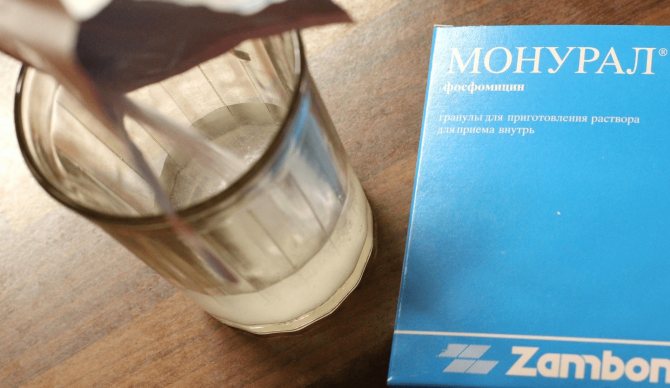
Before taking Monural in the form of a white powder, it must be dissolved in a glass of water, one-third full.
Directions for use and dosage
Monural is a drug that must be taken once to relieve symptoms of inflammation in the genitourinary system. Studies conducted on the effectiveness of such therapy have shown that a single use of the drug produces an effect on the body similar to taking amoxicillin-based antibiotics for 5-7 days. At the same time, Monural does not cause resistance of pathogenic microbes to the active substance, rarely causes side effects and is well tolerated.
To eliminate an acute infectious process, it is enough to take one sachet of Monural, diluted in a third of a glass of clean water. It is recommended to use the product several hours after eating, since absorption of the drug is worse with a full stomach. It is better to do this at night, on an empty bladder.
According to the instructions for use, if it is necessary to re-take the drug, when the inflammation has become severe or chronic, Monural is drunk again a day later. In particularly severe situations, therapy can last up to three months, and the medicine is taken once every ten days.
Attention! A woman who is breastfeeding should take Monural with caution during lactation; it is better to stop breastfeeding for a day (in the case of a single use). Many experts allow breastfeeding to continue if the mother has previously pumped and frozen the milk. After taking Monural, you need to wait at least 6 hours, and then calmly apply the baby to the breast again.
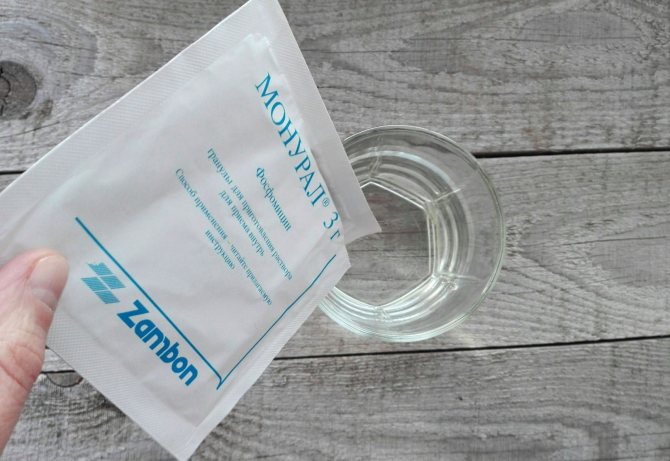
Contraindications and side effects
Despite the fact that Monural is considered a fairly safe drug during breastfeeding, the doctor must prescribe it, taking into account the limitations in use and the possibility of negative reactions from both mother and baby.
The active substance of the antibiotic is mainly processed by the kidneys. Therefore, it cannot be used in cases of severe renal failure. For diabetes mellitus, you need to take into account that one sachet with two or three grams of fosfomycin contains about two grams of sucrose.
Since only ten percent of the drug’s components are excreted from the body through the intestinal tract, side effects due to dysbiosis in the form of nausea, diarrhea, constipation, and heartburn occur much less frequently than with treatment with most other antibiotics. In the USA at the beginning of the century, large-scale studies were conducted on the tolerability of Monural, in which more than four thousand patients took part, among them were children and pregnant women. Thus, diarrhea occurred in 3.7% of patients taking an antibiotic, nausea - in 2.4%, pain in the lower abdomen - in 1.9%. In rare cases, with individual intolerance to the components of Monural, patients developed a skin rash.
Contraindications and side effects
"Monural" is a strong antibiotic that is not suitable for everyone and has a number of contraindications:
- Individual intolerance to the components of the drug.
- Children's age up to 5 years.
- Diabetes.
- Severe form of renal failure.
When breastfeeding, the drug should be taken only as prescribed by a doctor . Caution is important, since antibiotics can cause many side effects that affect not only the mother, but also the baby:
- Heartburn and bloating.
- Diarrhea.
- Nausea and vomiting, dry mouth.
- Headaches, dizziness.
- Impaired coordination of movements.
- Allergic reactions: rash on the body, swelling, redness and itching.
- Disturbance of intestinal microflora.
Important! If side effects occur, a woman can improve her condition by consuming activated carbon tablets or other sorbents. Unpleasant phenomena usually go away after stopping taking the drug.
Effect of the drug on lactation and the child
No large-scale studies have been conducted on the effects of Monural on the process of breast milk production. But most doctors agree that the drug does not affect lactation. As noted above, the components of the drug penetrate into breast milk in quantities that cannot adversely affect the health of the child. According to the European electronic directory (https://www.e-lactancia.org/), the volume of active substances of the drug that enters breast milk is successfully blocked by calcium. But still, a nursing mother should carefully monitor the baby’s reaction during treatment with Monural. If skin rashes, constipation, diarrhea, or pain occur, you should immediately consult a doctor.
Medicines during breastfeeding
A drug from the antibacterial group Monural actively fights urinary tract infections, having a powerful effect on it.
It is prescribed for acute and chronic cystitis and pyelonephritis, as well as for urethritis and bacteriuria. Once in the body, the solution breaks down into two active substances:
- Fosfomycin is the main active ingredient, which is essentially an antibiotic. Some time after administration, it is excreted by the kidneys, and within two to three hours the dose accumulated in the urine can begin to fight the infection. It very quickly blocks all types of bacteria even at the earliest stage of their development, and also quickly destroys “older” pathogenic microbes.
- Trometamol is an excipient that restores blood cells and increases diuresis, which is very important for the full fight against infection.
The drug is usually eliminated from the body within two to three days.
Studies have not been conducted to determine the effect of this drug on infants. But there is information that the active substance passes into breast milk in high concentrations, which can harm the baby.
Analogues of Monural, permitted during lactation
The following drugs are complete analogues of Monural in terms of active substance:
- Phosphoral Rompharm;
- Ecomural;
- Uronormin-F.
These antibiotics have identical characteristics, but are produced by different manufacturers and differ in price.
If for some reason antibiotics with fosfomycin are not suitable for the treatment of cystitis and urethritis in a nursing mother, then the doctor can select other drugs with a similar effect. The “Federal Guide for Physicians on the Use of Medicines in Russia” specifies the following drugs for the treatment of bacterial urinary tract infections in adults:
- Amoxicillin/clavulanate (Amoxiclav, Augmentin);
- Norfloxacin (Nolitsin);
- Nitrofurantoin (Furadonin);
- Co-trimoxazole.
According to the European electronic directory (https://www.e-lactancia.org/), all these antibiotics are relatively safe for mother and child during breastfeeding. But the instructions indicate that the above drugs can be used by nursing mothers only for health reasons.
The clinical effectiveness of therapy after a single dose of monural was comparable to the effectiveness of therapy with other antibacterial drugs for 3–7 days.
SOUTH. Alyaev, A.Z. Vinarov, V.B. Voskoboynikov
“Acute cystitis. Efficacy of Monural (fosfomycin trometamol) in its treatment.”
Furadonin exhibits the same high activity against pathogenic microorganisms as Monural. Amoxiclav has been well studied and is used not only for urinary tract infections. Nolitsin is also effective in the treatment of bacterial lesions of the genital organs. Abroad, Co-trimoxazole is the drug of choice for the treatment of acute cystitis in both adults and children. But according to some data, the resistance of E. coli to it in Russia is about 50%. These antibiotics are intended for long-term treatment (7–14 days).
A comparison of Monural with other drugs shows that this antibiotic has some of the least restrictions in use.
Table: comparative characteristics of Monural and its analogues for the treatment of the urinary tract
| Active substance | Indications | Limitations in use | Adverse reactions | price, rub. | |
| Monural | Fosfomycin. | Bacterial cystitis, urethritis in acute, recurrent and chronic forms. | Severe renal failure. |
| From 470 for 1 sachet. |
| Phosforal Rompharm | Fosfomycin. | Urinary tract infections caused by bacteria. |
|
| From 330 for 1 sachet. |
| Ecomural | Fosfomycin. | Acute uncomplicated bacterial urinary tract infections. |
|
| From 335 per bag. |
| Uronormin-F | Fosfomycin. | Infectious and inflammatory diseases of the lower urinary tract caused by bacteria. |
|
| From 360 per bag. |
| Amoxiclav | Amoxicillin and clavulanic acid. |
|
|
| From 235 for 15 tablets (375 mg). |
| Nolitsin | Norfloxacin. |
|
|
| From 170 for 10 tablets (400 mg). |
| Furadonin | Nitrofurantoin. |
|
|
| From 80 for 20 tablets (50 mg). |
| Co-trimoxazole | Sulfamethoxazole, trimethoprim. |
|
|
| From 25 for 10 tablets (480 mg). |
Photo gallery: analogues of Monural during lactation
Phosphoral Rompharm is a structural analogue of Monural and is produced in Romania Ecomural is produced in Russia by the pharmaceutical Uronormin-F is produced by the Russian enterprise Pharmstandard Amoxiclav is a modern antibacterial agent, which is made on the basis of amoxicillin and clavulanic acid Nolitsin is active against most gram-negative and some gram-positive bacteria Furadonin is one of the main drugs prescribed for cystitis, urethritis, pyelonephritis Co-trimoxazole is used to treat infections of both the urinary tract and respiratory organs
Complex treatment with Monural and cranberry juice
Despite the proven effectiveness of Monural, most doctors note that antibacterial therapy for urinary tract infections should be carried out in conjunction with other measures. Moreover, if my familiar medical specialists prioritize taking antibiotics, then traditional healers rely more on drinking plenty of fluids in the form of special decoctions. The main purpose of such drinks is to restore the body's defenses and change the pH of urine towards increased acidity. Drinking plenty of water in itself helps remove bacteria and their metabolic products from the bladder, and the acidic environment is unsuitable for the growth and reproduction of pathogenic microorganisms.
One of the frequently recommended drinks for preventing relapses of acute cystitis and for treating its chronic form is cranberry juice. It is safe for use by a nursing mother.
The experience of one of my relatives indicates that after one-day antibacterial therapy with Monural, manifestations of cystitis bothered her for several months in a less pronounced form. After turning to a traditional healer, she began drinking three glasses of fruit drink every day. This therapy continued for two weeks. Then a break was taken for the same period, and the course of treatment was repeated. At the same time, the woman tried to avoid hypothermia. After this, bladder inflammation did not bother her.

Cranberry juice is one of the main traditional medicines for the treatment of urethritis and cystitis.
Doctor Komarovsky's opinion
Famous pediatrician and TV presenter O.E. Komarovsky believes that for established bacterial diseases of the urinary tract, taking a safe antibiotic is the best solution. This is because these drugs are primarily excreted in the urine. And therefore it contains a high concentration of the drug. Moreover, the doctor notes that today there are a number of antibiotics that can be safely treated during lactation. One of these drugs is Monural. Komarovsky says that a baby needs, first of all, a healthy mother who produces milk in sufficient quantities. In case of acute bacterial cystitis in a nursing woman, the potential benefit of an antibiotic is much higher than the possible harm from using the medication.






